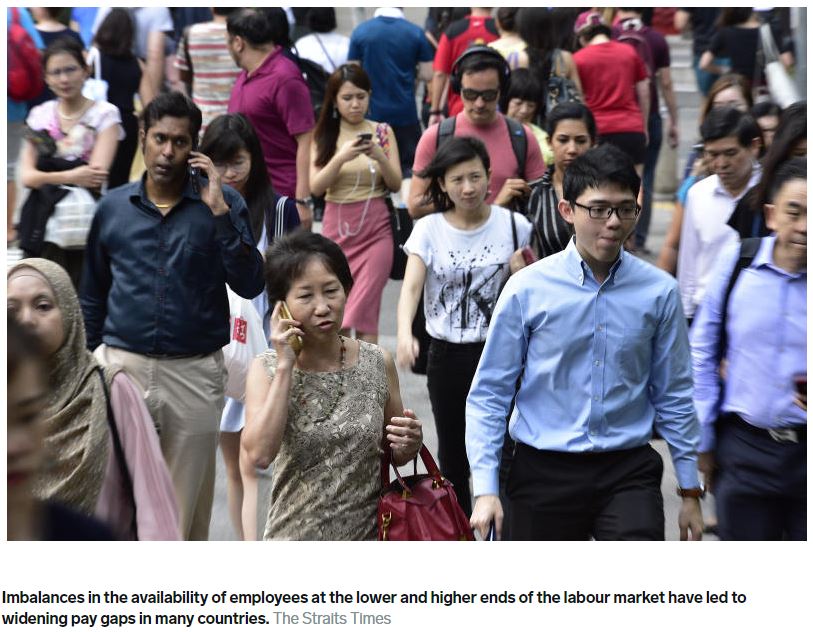The senior vs. entry-level pay gap in Singapore increased 12.1% in 10 years – but it’s nothing compared to India’s 66%
Asia has seen an increasing divide between the pay of lower-level employees and senior managers, a study has found, with Singapore home to some of the largest increases recorded over 10 years.
Organisational consulting firm Korn Ferry said on Monday (July 10) that its study of pay gaps found that Singapore experienced a pay gap increase of 12.1 per cent from 2008 to 2017 – the fourth-highest in the region.
While this is so, Singapore also remains below the regional average of 15.3 per cent as other nations have seen much greater disparities in pay inequities, the study found.
Out of nine countries surveyed in Asia, eight saw moderate increases in the pay gaps between lower- and higher-level employees.
India showed the most dramatic increase of 66 per cent, sending it to the top of the Asia chart.
On the global scale, the study uncovered that the pay gap had widened in 77 per cent of the 58 countries studied, with Bahrain in the Middle East having the most stark increase of 117.76 per cent.
Only nine European countries and two in Latin America showed narrowing pay gaps, with some possibly due to higher tax rates for high-income earners, fewer pay increases at the top level, as well as government and union intervention in pay at the lower levels, according to Korn Ferry.
Pay gaps were calculated by dividing the typical salary for people at senior management levels in each country by that of people at entry-level positions. The result was compared with its equivalent from 2008 to obtain a percentage figure.
Labour market imbalances to blame
Korn Ferry’s global head of rewards and benefits solutions, Bob Wesselkamper, said that enhanced productivity from automation and offshoring has led to an abundance of available workers at the lower end of the labour market which hampers pay rises.
On the contrary, the higher end of the labour market faces a shortage of employees skilled and experienced in science, technology, engineering and mathematics (STEM).
Wesselkamper also noted that organisations are competing to hire senior managers with in-demand soft skills, including emotional intelligence, creative thinking and the ability to manage large and complex teams. As such, the pay for senior-level positions is rising and may increase at a faster rate than other jobs.
Korn Ferry Signapore associate client partner, Kartikey Singh, said: “Whilst the average increase in Asia at 15.3 per cent seems moderate for a 10-year period, salaries at the senior level have risen steadily due to the increased need to have talent that can grow the business and take organisations global.”
Singh added that economic and inflationary growth have led to “significant” salary increases for lower-level positions, subsequently leading to “moderation” in the pay equity gap.
“Going forward, as businesses feel the pressure of technological disruption and the crunch of good middle and top-level leaders, the gap might widen at a faster pace,” he said.
Source: https://www.businessinsider.sg/the-senior-vs-entry-level-pay-gap-in-singapore-increased-12-1-in-10-years-but-its-nothing-compared-to-indias-66/


 English
English




